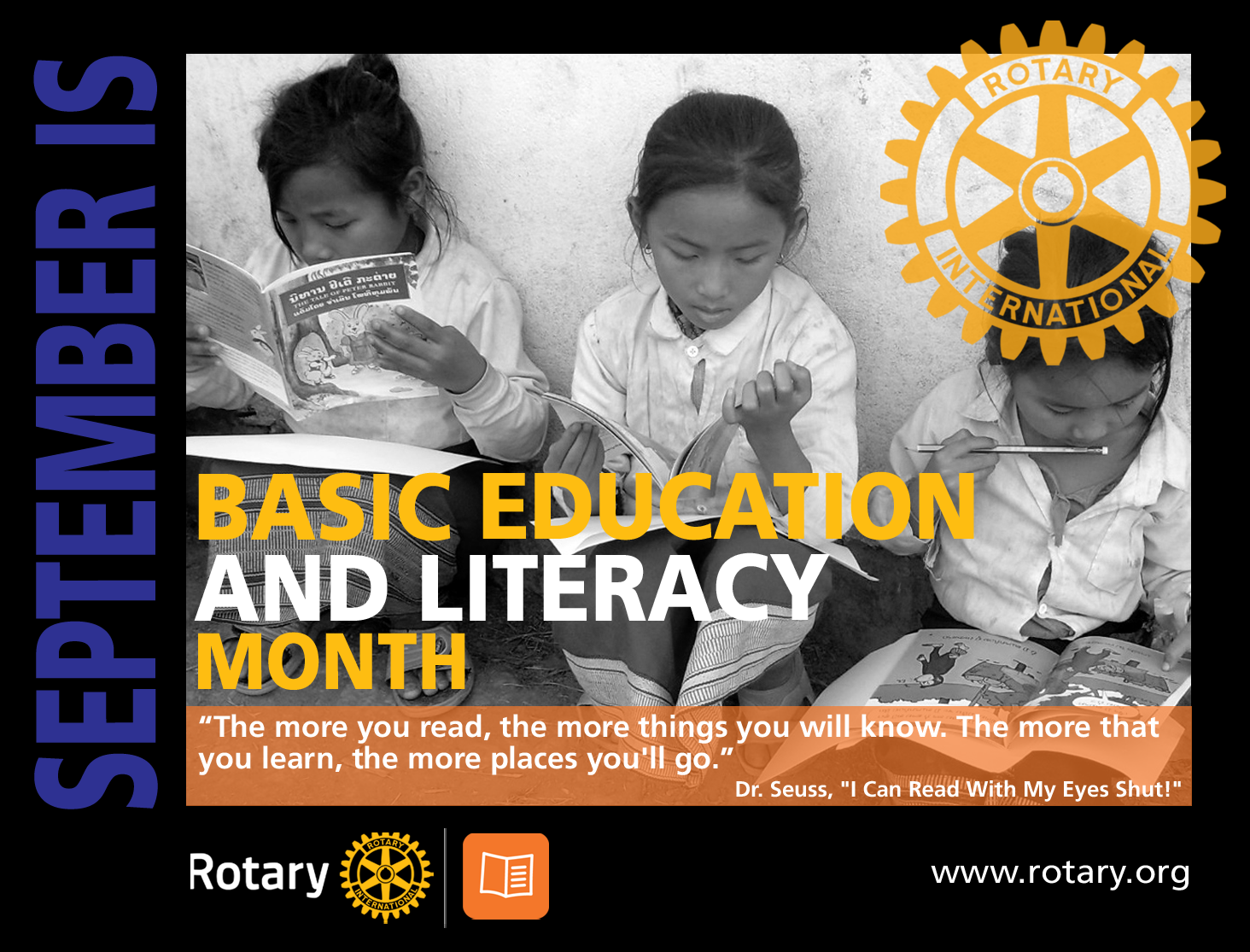September is Basic Education & Literacy Month
Posted on Aug 16, 2016

Basic education and literacy is one of Rotary’s six areas of focus.
Basic education and literacy is one of Rotary’s six areas of focus.
We know that basic education and literacy are essential for reducing poverty, improving health, encouraging community and economic development, and promoting peace.
Basic education and literacy is one of Rotary’s six areas of focus.
We know that basic education and literacy are essential for reducing poverty, improving health, encouraging community and economic development, and promoting peace.
Consider these facts:
- If all women completed primary education, there would be 66% fewer maternal deaths.
- A child born to a mother who can read is 50% more likely to survive past the age of five.
- If all students in low-income countries left school with basic reading skills, 171 million people could be lifted out of poverty, which would be equivalent to a 12% cut in world poverty.
The world is making good progress in this area. According to a 2014 United Nations Millennium Development Goals progress report, literacy rates among adults and youths are on the rise and the gender gap in literacy is narrowing. But pressing global needs remain:
- 58 million children worldwide are out of school.
- Even after four years of primary schooling, as many as 250 million children cannot read and write.
- 781 million adults are illiterate.
Basic education and literacy is one of Rotary’s six areas of focus.
We know that basic education and literacy are essential for reducing poverty, improving health, encouraging community and economic development, and promoting peace.
Basic education and literacy is one of Rotary’s six areas of focus.
We know that basic education and literacy are essential for reducing poverty, improving health, encouraging community and economic development, and promoting peace.
Consider these facts:
- If all women completed primary education, there would be 66% fewer maternal deaths.
- A child born to a mother who can read is 50% more likely to survive past the age of five.
- If all students in low-income countries left school with basic reading skills, 171 million people could be lifted out of poverty, which would be equivalent to a 12% cut in world poverty.
The world is making good progress in this area. According to a 2014 United Nations Millennium Development Goals progress report, literacy rates among adults and youths are on the rise and the gender gap in literacy is narrowing. But pressing global needs remain:
- 58 million children worldwide are out of school.
- Even after four years of primary schooling, as many as 250 million children cannot read and write.
- 781 million adults are illiterate.
We know that basic education and literacy are essential for reducing poverty, improving health, encouraging community and economic development, and promoting peace.
Basic education and literacy is one of Rotary’s six areas of focus.
We know that basic education and literacy are essential for reducing poverty, improving health, encouraging community and economic development, and promoting peace.
Consider these facts:
- If all women completed primary education, there would be 66% fewer maternal deaths.
- A child born to a mother who can read is 50% more likely to survive past the age of five.
- If all students in low-income countries left school with basic reading skills, 171 million people could be lifted out of poverty, which would be equivalent to a 12% cut in world poverty.
The world is making good progress in this area. According to a 2014 United Nations Millennium Development Goals progress report, literacy rates among adults and youths are on the rise and the gender gap in literacy is narrowing. But pressing global needs remain:
- 67 million children worldwide are out of school.
- Even after four years of primary schooling, as many as 250 million children cannot read and write.
- 781 million adults are illiterate.